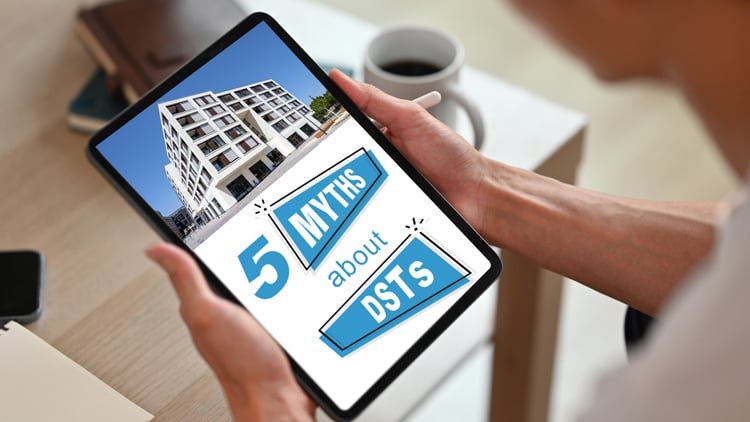
There are many myths about Delaware Statutory Trust (DST) fund investments that we wanted to help clear up. Delaware Statutory Trusts have their benefits and limitations, but let’s address some of the common misconceptions that we often hear from investors.
1. DSTs Are Too Expensive
One of the biggest concerns of investors when it comes to investing in DSTs is the fees. DST fees are generally structured at three levels: upfront, operating, and disposition. Here are some fees that investors can come across in a DST transaction:
- Selling commissions
- Broker-dealer allowance
- Wholesaling fees
- Managing broker-dealer fee
- Offering and organization expenses
- Acquisition fees
While it is true that DST fees and expenses do add up, there are many benefits that must be considered that go into DST investments compared to direct property ownership. Here are some of the benefits of passive investment with extra fees over direct property:
- Time: Direct property investment can take more of your valuable time than a DST investment between finding a property and the time it takes to qualify for a loan when not dealing with an all-cash transaction.
- Management: Instead of taking over managerial responsibilities, DST investments often have a professional property manager overseeing daily operations.
- Back-end costs: Over the span of the DST’s life, sponsors take asset management fees and a disposition fee upon the sale of the property. Direct property has costs too including sales commissions, advertising costs, and legal and conveyance fees.
- Ongoing needs: Direct property requires more capital for property maintenance. DST investments require capital raised upfront or through cash flows.
When using leverage, the borrower is the trust. Financing is easier to obtain and less costly for investors as each DST investor does not need to individually qualify.
2. DSTs Are Illiquid
DST investments are illiquid with moderate to long-term holding periods. One way to make your DST investment more liquid is by using the Realized DST secondary market.
Owners of certain 1031 exchange-qualified DST securities can market their investments to investors through the Realized Marketplace, a place where buyers and sellers can conduct business.
3. Transferability
DST investments are easily transferable. Beneficial owners can transfer their DST interests to others without notice or the consent of lenders unless prohibited or restricted by the trust agreement.
4. Potential Tax Risk
DSTs are considered securities under federal securities laws but are treated as direct ownership under Section 1031 of the IRS tax code. Since DST investments are 1031 exchange eligible, investors can transfer into a DST in a “like-kind” exchange to defer capital gains taxes.
Keep in mind that tax benefits from an exchange don’t apply if the individual taxpayer reinvests in property through a partnership, LLC, or corporation.
5. Borrower Risk
With a leveraged DST, investors take on a proportionate share of the property debt when interests are purchased. These loans are non-recourse, and the personal and business assets of the investor outside the DST property are protected. The loan collateral is the DST real property. Investors do not need to include DST mortgage debt financing on personal finance statements.
Delaware Statutory Trust investments can be an attractive option for real estate investors looking for passive investment opportunities. Investors with limited funds can own a fractional interest of quality, 1031 eligible properties with potential tax advantages. Speak with your financial advisor and a tax professional to see if a DST investment is right for you.



